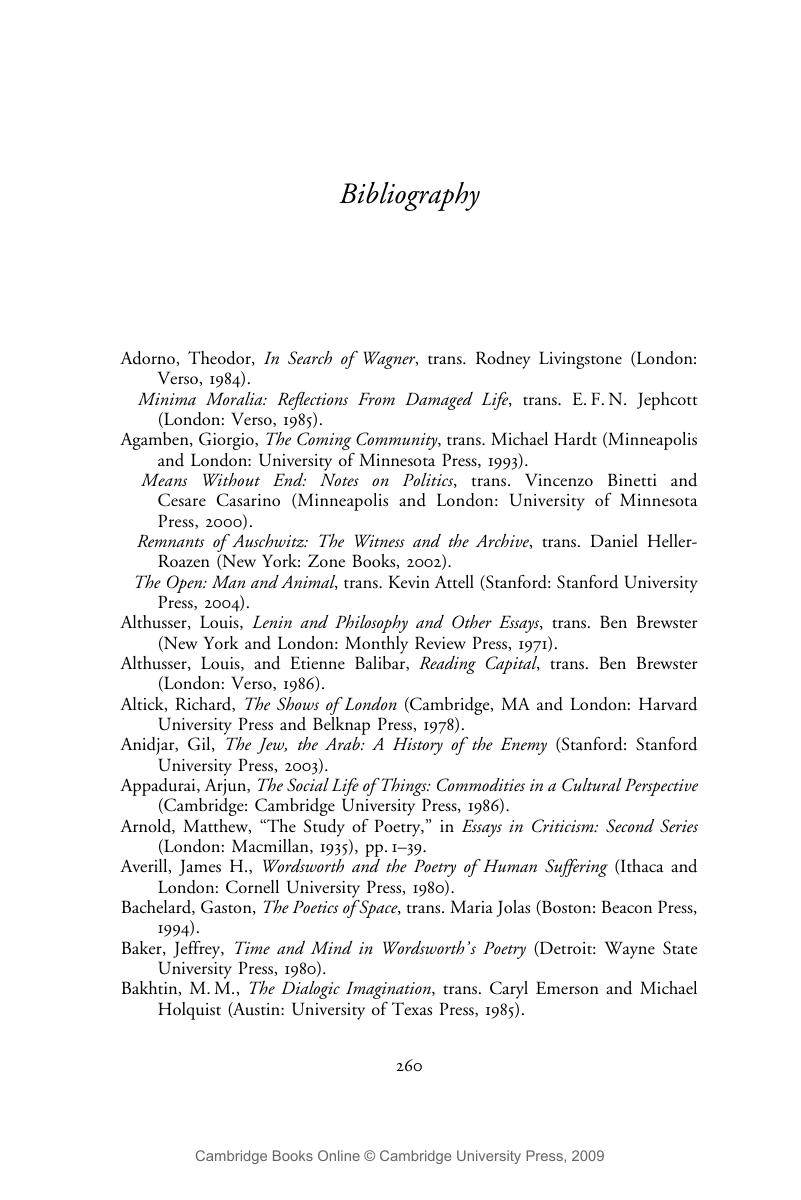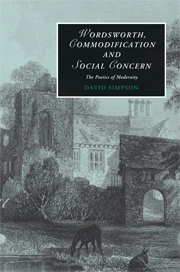Book contents
- Frontmatter
- Contents
- Acknowledgments
- CAMBRIDGE STUDIES IN ROMANTICISM
- Introduction: the ghost and the machine: spectral modernity
- 1 At the limits of sympathy
- 2 At home with homelessness
- 3 Figures in the mist
- 4 Timing modernity: around 1800
- 5 The ghostliness of things
- 6 Living images, still lives
- 7 The scene of reading
- Notes
- Bibliography
- Index
- References
Bibliography
Published online by Cambridge University Press: 15 September 2009
- Frontmatter
- Contents
- Acknowledgments
- CAMBRIDGE STUDIES IN ROMANTICISM
- Introduction: the ghost and the machine: spectral modernity
- 1 At the limits of sympathy
- 2 At home with homelessness
- 3 Figures in the mist
- 4 Timing modernity: around 1800
- 5 The ghostliness of things
- 6 Living images, still lives
- 7 The scene of reading
- Notes
- Bibliography
- Index
- References
Summary

- Type
- Chapter
- Information
- Wordsworth, Commodification, and Social ConcernThe Poetics of Modernity, pp. 260 - 273Publisher: Cambridge University PressPrint publication year: 2009



